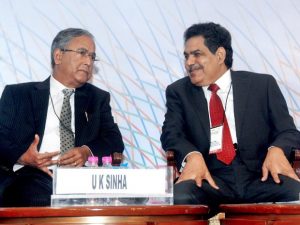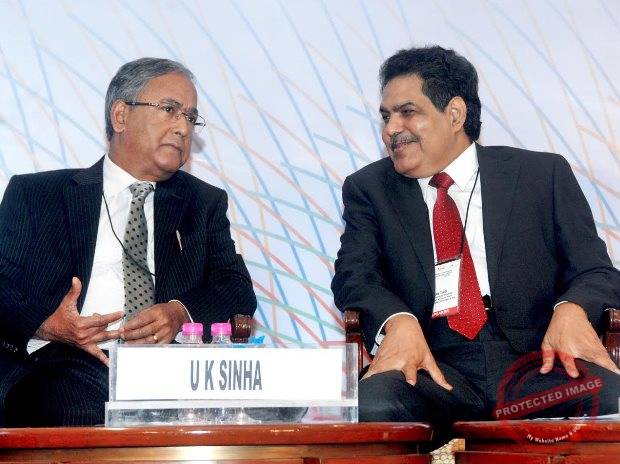According to a government notification on February 10, 2017, senior IAS officer Ajay Tyagi has been selected to take over as the next Chairman of Securities and Exchange Board of India(SEBI). He will replace incumbent Chief UK Sinha who retires on March 1, 2017.
- Tyagi, a 1984-batch IAS officer of the Himachal Pradesh cadre is currently serving as an additional secretary (investments) in the Department of Economic Affairs in the Ministry of Finance. Tyagi will be the 9th SEBI chairman.
- A 1976 batch IAS officer of Bihar cadre, UK Sinha took the office as SEBI Chairman on February 18, 2011. Initially he was appointed for a term of 3 years but just before his last term was to end on February 17, 2016, he was given a two-year extension.
- The government re-appointed him to the position till March 1, 2017. With this he became the second-longest serving chief of the capital markets regulator after D.R. Mehta who served as the Chairman of SEBI from 1995 to 2002.
- Besides Tyagi, Power Secretary PK Pujari also emerged as the frontrunner for the post. The Appointments Committee of the Cabinet headed by Prime Minister Narendra Modi approved Tyagi’s appointment for a period not exceeding five years or till the age of 65 years, whichever is earlier.
- Sebi chairman receives a consolidated pay package of Rs 4.5 lakh per month.
About Ajay Tyagi
Ajay Tyagi is a Post Graduate in Economics who hails from Uttar Pradesh. He did his Master in Public Administration from Harvard and holds Master in Technology (Computer Science). He holds a Bachelor degree in electronics also.
- The 58-year-old Tyagi served as a Joint Secretary in Ministry of Environment, Forest and Climate Change before joining Finance Ministry on November 1, 2014 as Additional Secretary.
- Tyagi has also worked in ministries of Petroleum and Natural Gas, Steel and Rural Development. He has held various posts in Himachal Pradesh government including in power, revenue, finance and information technology. Tyagi, for a short while, was also on the board of Reserve Bank of India (RBI).
About Securities and Exchange Board of India (SEBI)
The Securities and Exchange Board of India (SEBI) is the regulator for the securities market in India. It was established as a non-statutory body for regulating the securities market in the year 1988 and given statutory powers on 30 January 1992  through the SEBI Act, 1992. It became an autonomous body by The Government of India on 12 April 1992.
through the SEBI Act, 1992. It became an autonomous body by The Government of India on 12 April 1992.
Members of SEBI
- The chairman, nominated by Union Government of India
- Two Officers from Union Finance Ministry
- One member from the Reserve Bank of India
- The remaining five members are nominated by Union Government of India, out of them at least three shall be whole-time members.
- The main role of SEBI is to protect the interest of the Issuers of securities, Investors and Market intermediaries.
Objectives of SEBI
- Regulate the activities of stock exchange.
- Protect the rights of investors and ensuring safety to their investment.
- Prevent fraudulent and malpractices by having balance between self regulation of business and its statutory regulations.
- Regulate and develop a code of conduct for intermediaries such as brokers, underwriters, etc.
Keys:
- Founded: 1988
- Headquarter: Mumbai, Maharashta
- Chairman: UK Sinha





